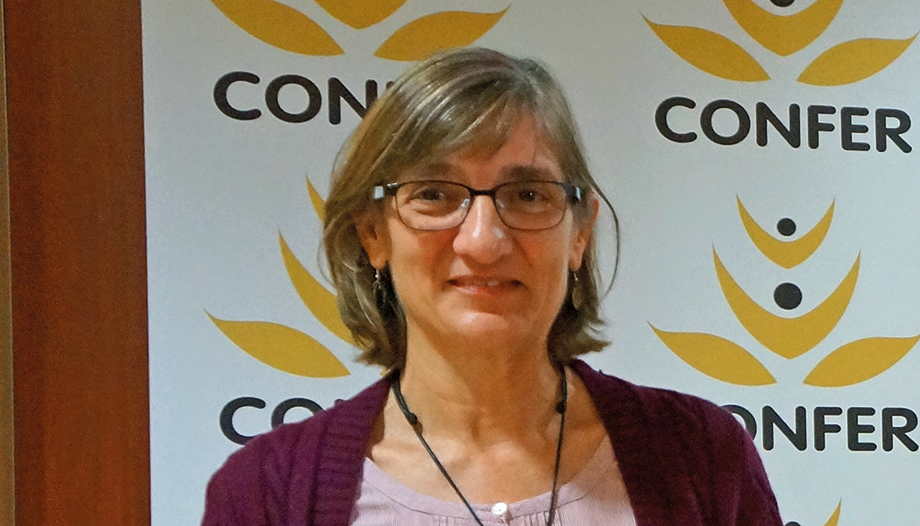The vice-presidency that has been entrusted to me I assume it, above all, from the availability and commitment to what CONFER means and wants to be: that space of encounter, support, communion and collective construction.
For many years CONFER has been a support, mediation and reference for me in my personal journey as a religious and more recently in my congregational service as Superior General. Now I have the opportunity to give back something of what I have received and I want to do it generously, within the possibilities of combining it with my congregational responsibility.
Shared responsibility
I am fortunate to join a team that has already been working and this enriches me and offers me security. At the same time, it gives me confidence because it is a shared responsibility and a learning experience, since it is a task that is nourished by a rich group of people, both at the national headquarters and in the different regional and diocesan CONFERs and, of course, in the whole of consecrated life.
In general, we start from a positive reception to the proposals launched by CONFER, but perhaps the great challenge is that it does not remain something unidirectional. We are living a moment of renewal expressed, among others, in the project for the strengthening and viability of CONFER at the service of the religious Congregations in Spain, which was recently presented and approved in the Assembly.
It is a project that wants to respond to the challenges of religious life, gathered in a diagnosis that was elaborated based on the contributions of many congregations. It is precisely in listening to reality that the essential key to the success of this work of support lies, adapting the different services that CONFER offers to the changing needs of the present time.
An important role in the project should be to support the congregations with more difficulties, but also to promote synergies, exchanges or joint actions among congregations. Only from there will it be possible to renew, with creativity and audacity, the essence of our consecrated life and the service we are called to provide in the Church and society, with special attention to those who live in situations of greater vulnerability.
The female face
Female religious life has been and continues to be a majority over male religious life, not only in absolute numbers but also in the regular participation in the activities organized by CONFER.
We can say that CONFER has a feminine face that permeates daily life in its reflections, priorities and actions. We have just lived a relevant fact in the external visibility of this reality, as it has been the first female presidency of CONFER, since more than 25 years ago when the male and female conferences were united. However, I consider that there is no room for conformism in this matter. We must assume the commitment, together with the lay women, so that the Church as a whole does not lose our look, sensitivity, knowledge... and be attentive to participate and share the spaces of ecclesial decision.
A great opportunity
Before the Synod that the whole universal Church is living, religious life starts "with a certain advantage". Life in community, the sharing of all that we are and have in a fruitful communication of goods, the spaces of discernment and decision-making, the collegiality, the paths in shared mission with the laity, the networking with so many entities and the experiences of intercongregationality....
The Synod is a great opportunity and responsibility at the same time, so that from our own experience and in mutual listening with the local communities in the diocesan Church, we are able to make proposals that help to make more real, more incarnated the model of Church, people of God that the Second Vatican Council itself already dreamed of. A Church in mission, that accompanies in solidarity with minorities and the most impoverished without judgment or exclusion.
The vocational challenge
The decline of vocations to the consecrated life is evident but, sometimes, the question is focused on what happens to the youth who do not understand or accept this vocational proposal. Perhaps we need to ask ourselves if we have been able to show in new languages and forms, the mystical and prophetic essence of consecrated life.
And finally, and perhaps most importantly, to recognize that there must be something of God in this reality and that behind the numbers there is still a very evangelical call.








